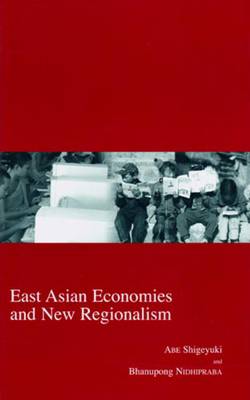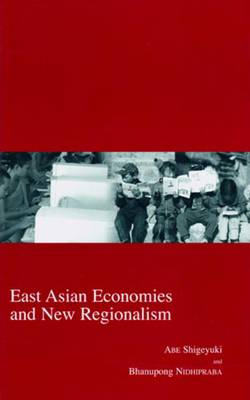
Bedankt voor het vertrouwen het afgelopen jaar! Om jou te bedanken bieden we GRATIS verzending (in België) aan op alles gedurende de hele maand januari.
- Afhalen na 1 uur in een winkel met voorraad
- In januari gratis thuislevering in België
- Ruim aanbod met 7 miljoen producten
Bedankt voor het vertrouwen het afgelopen jaar! Om jou te bedanken bieden we GRATIS verzending (in België) aan op alles gedurende de hele maand januari.
- Afhalen na 1 uur in een winkel met voorraad
- In januari gratis thuislevering in België
- Ruim aanbod met 7 miljoen producten
Zoeken
€ 99,45
+ 198 punten
Omschrijving
In the face of the financial crisis of East Asia in 1997, Japan successfully pressed forth the Miyazawa Plan and other efficient rescue packages while the International Monetary Fund (IMF) and the World Bank failed to present effective programs. With its presence established, Japan kept playing a leading role in formulating the Chiang Mai Initiative which facilitated bilateral and regional economic cooperation in the area. Based on the analysis of the process, this book examines the ways in which East Asia has grappled with the regional integration of the economies of the area. The study focuses upon competing developmental models, the effects of the Free Trade Agreement and the Economic Partnership Agreement, the initiatives of the Association of Southeast Asian Nations, investments, and trades in the region. The contributors to the book then inquire what can be done in financial and monetary domains, with special attention paid to the effects of the depreciation of currencies and the consequences of the IMF emergency policies. The study also addresses the issues of productivity, problems of agrarian small states, and difficulties of the socially weak in the region.
Specificaties
Betrokkenen
- Auteur(s):
- Uitgeverij:
Inhoud
- Aantal bladzijden:
- 304
- Taal:
- Engels
- Reeks:
- Reeksnummer:
- nr. 16
Eigenschappen
- Productcode (EAN):
- 9781920901233
- Verschijningsdatum:
- 31/03/2008
- Uitvoering:
- Hardcover
- Formaat:
- Genaaid
- Afmetingen:
- 157 mm x 226 mm
- Gewicht:
- 635 g

Alleen bij Standaard Boekhandel
+ 198 punten op je klantenkaart van Standaard Boekhandel
Beoordelingen
We publiceren alleen reviews die voldoen aan de voorwaarden voor reviews. Bekijk onze voorwaarden voor reviews.









